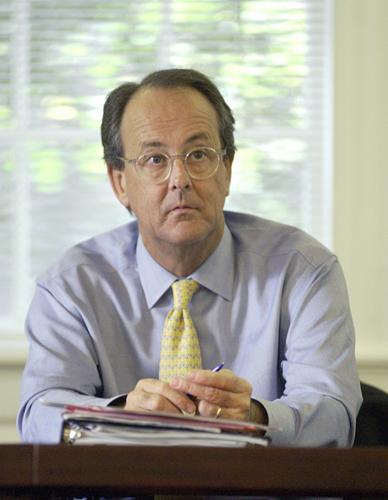Bowles leaves Board of Governors to head Obama’s budget committee
Appointed to the deficit committee, Erskine Bowles joins Alan Simpson to head committee
John Cline
Staff Writer
In an effort to improve the budget, President Barack Obama has created a deficit committee to address the issue. An appointee to the new committee, former University of North Carolina President Erskine Bowles, will share the helm of the bipartisan deficit committee with former Republican senator Alan Simpson of Wyoming. Simpson formerly served as the Senator of Wyoming from 1979 to 1997, while Bowles served in Washington from 1996 to 1998 as former President Bill Clinton’s Chief of Staff.
Under Clinton, Bowles helped to broker the Balanced Budget Act of 1997 with the Republican leadership in Congress, helping to generate the first balanced budget in nearly 30 years.
Greg Doucette, president of the UNC Association of Student Governments and a first year law student at N.C. Central, said he thinks the president made a good decision in picking Bowles.
“I’m sure the president picked him for his breadth of experience,” Doucette said. “He was Bill Clinton’s Chief of Staff and helped put together a bipartisan budget that helped reign in the earlier deficits left over from before Clinton’s term.”
Daniel Marcus, a junior in technical education, said he agrees that Bowles was the right choice.
“He’s been around and involved in politics for along time, with a good record working with both parties,” Marcus said. “I might not necessarily agree with his body of work with education in North Carolina, but he has done well in regards to the budget in recent years and that speaks well of his ability to take action, and if that’s what this administration is all about, then yes he’s a good choice for this position.”
According to Doucette, Bowles and Simpson will work together to generate ideas for the president.
“My understanding is they’re going to meet and come up with solutions which Obama will then present to Congress after the November elections,” Doucette said. “They’re going to try and get this enormous deficit under control.”
The commission’s recommendations are due Dec. 1.
With such a task ahead of them, it is hard to say what measure of success can be expected, but Doucette and others are hopeful, and say that a lot depends on the upcoming election year.
“I think honestly it comes down to what happens in the November elections,” Doucette said. “They’ll do important work and I’m sure what they come up with will be well thought out. It really all comes down to November and what members of what parties are in the legislature.”
Marcus agreed that it is tough to predict.
“This is economics, when it comes to econ you can never be sure if what you’re doing is right or wrong,” Marcus said. “But he has experience and his track record is pretty good so he doesn’t strike me as someone that will fail and I hope he has the same success as he had here in N.C.”
The deficit is expected to reach $1.6 trillion by the end of this year.
“I’ll be honest, I’m a fairly conservative republican and not a huge fan of the president,” Doucette said. “But I think he’s made a phenomenal choice in Bowles and if things get done then more power to him.”
Michael Sullivan, a junior in civil engineering, said he shares the optimistic view and hopes for the best.
“It’s very hard for them to accomplish anything with the partisan politics in Washington right now,” Sullivan said. “But I feel confident that Obama has made the right choice in Bowles and I think he can help us turn the corner on this deficit.”








